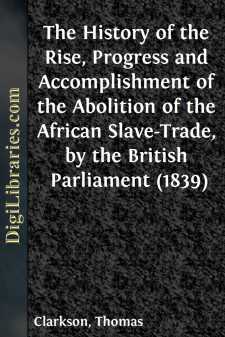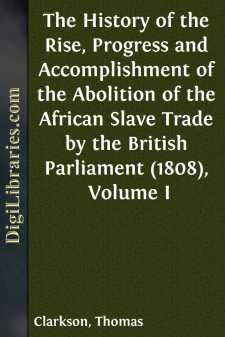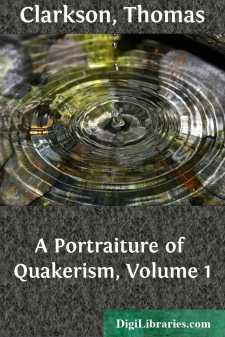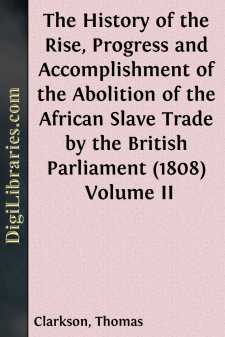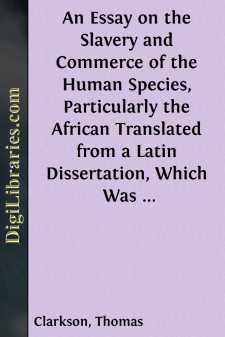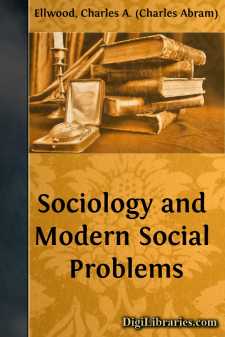Categories
- Antiques & Collectibles 13
- Architecture 36
- Art 48
- Bibles 22
- Biography & Autobiography 816
- Body, Mind & Spirit 145
- Business & Economics 28
- Children's Books 17
- Children's Fiction 14
- Computers 4
- Cooking 94
- Crafts & Hobbies 4
- Drama 346
- Education 58
- Family & Relationships 59
- Fiction 11834
- Foreign Language Study 3
- Games 19
- Gardening 17
- Health & Fitness 34
- History 1378
- House & Home 1
- Humor 147
- Juvenile Fiction 1873
- Juvenile Nonfiction 202
- Language Arts & Disciplines 89
- Law 16
- Literary Collections 686
- Literary Criticism 179
- Mathematics 13
- Medical 41
- Music 40
- Nature 179
- Non-Classifiable 1768
- Performing Arts 7
- Periodicals 1453
- Philosophy 66
- Photography 2
- Poetry 897
- Political Science 203
- Psychology 45
- Reference 154
- Religion 516
- Science 126
- Self-Help 85
- Social Science 82
- Sports & Recreation 34
- Study Aids 3
- Technology & Engineering 59
- Transportation 23
- Travel 463
- True Crime 29
Our website is made possible by displaying online advertisements to our visitors.
Please consider supporting us by disabling your ad blocker.
The History of the Rise, Progress and Accomplishment of the Abolition of the African Slave-Trade, by the British Parliament (1839)
by: Thomas Clarkson
Categories:
Description:
Excerpt
CHAPTER I.
HISTORY OF THE ABOLITION OF THE SLAVE TRADE.
No subject more pleasing than that of the removal of evils.—Evils have existed almost from the beginning of the world; but there is a power in our nature to counteract them—this power increased by Christianity.—Of the evils removed by Christianity one of the greatest is the Slave Trade.—The joy we ought to feel on its abolition from a contemplation of the nature of it; and of the extent of it; and of the difficulty of subduing it.—Usefulness also of the contemplation of this subject.
I scarcely know of any subject, the contemplation of which is more pleasing, than that of the correction or of the removal of any of the acknowledged evils of life; for while we rejoice to think that the sufferings of our fellow-creatures have been thus, in any instance, relieved, we must rejoice equally to think, that our own moral condition must have been necessarily improved by the change.
That evils, both physical and moral, have existed long upon earth there can be no doubt. One of the sacred writers, to whom we more immediately appeal for the early history of mankind, informs us that the state of our first parents was a state of innocence and happiness; but that, soon after their creation, sin and misery entered into the world. The poets in their fables, most of which, however extravagant they may seem, had their origin in truth, speak the same language. Some of these represent the first condition of man by the figure of the golden, and his subsequent degeneracy and subjection to suffering by that of the silver, and afterwards of the iron age. Others tell us that the first female was made of clay; that she was called Pandora, because every necessary gift, qualification, or endowment, was given to her by the gods, but that she received from Jupiter, at the same time, a box from which, when opened, a multitude of disorders sprung, and that these spread themselves immediately afterwards among all of the human race. Thus it appears, whatever authorities we consult, that those which may be termed the evils of life existed in the earliest times. And what does subsequent history, combined with our own experience, tell us, but that these have been continued, or that they have come down in different degrees through successive generations of men, in all the known countries of the universe, to the present day?
But though the inequality visible in the different conditions of life, and the passions interwoven into our nature, (both which have been allotted to us for wise purposes, and without which we could not easily afford a proof of the existence of that, which is denominated virtue,) have a tendency to produce vice and wretchedness among us, yet we see, in this our constitution, what may operate partially as preventives and corrective of them. If there be a radical propensity in our nature to do that which is wrong, there is, on the other hand, a counteracting power within it, or an impulse by means of the action of the divine Spirit upon our minds, which urges us to do that which is right. If the voice of temptation, clothed in musical and seducing accents, charms us one way, the voice of holiness, speaking to us from within, in a solemn and powerful manner, commands us another. Does one man obtain a victory over his corrupt affections? an immediate perception of pleasure, like the feeling of a reward divinely conferred upon him, is noticed. Does another fall prostrate beneath their power? a painful feeling, and such as pronounces to him the sentence of reproof and punishment is found to follow. If one, by suffering his heart to become hardened, oppresses a fellow-creature, the tear of sympathy starts up in the eye of another, and the latter instantly feels a desire, involuntarily generated, of flying to his relief. Thus impulses, feelings, and dispositions have been implanted in our nature, for the purpose of preventing and rectifying the evils of life. And as these have operated, so as to stimulate some men to lessen them by the exercise of an amiable charity, so they have operated to stimulate others in various other ways to the same end. Hence the philosopher has left moral precepts behind him in favour of benevolence, and the legislator has endeavoured to prevent barbarous practices by the introduction of laws.
In consequence then of these impulses and feelings, by which the pure power in our nature is thus made to act as a check upon the evil part of it, and in consequence of the influence which philosophy and legislative wisdom have had in their respective provinces, there has been always, in all times and countries, a counteracting energy, which has opposed itself, more or less, to the crimes and miseries of mankind. But it seems to have been reserved for Christianity to increase this energy, and to give it the widest possible domain. It was reserved for her, under the same divine influence, to give the best views of the nature and of the present and future condition of man; to afford the best moral precepts, to communicate the most benign stimulus to the heart, to produce the most blameless conduct, and thus to cut off many of the causes of wretchedness, and to heal it wherever it was found. At her command, wherever she has been duly acknowledged, many of the evils of life have already fled. The prisoner of war is no longer led into the amphitheatre to become a gladiator, and to imbrue his hands in the blood of his fellow-captive for the sport of a thoughtless multitude. The stern priest, cruel through fanaticism and custom, no longer leads his fellow-creature to the altar to sacrifice him to fictitious gods. The venerable martyr, courageous through faith and the sanctity of his life, is no longer hurried to the flames. The haggard witch, poring over her incantations by moon-light, no longer scatters her superstitious poison among her miserable neighbours, nor suffers for her crime.
But in whatever way Christianity may have operated towards the increase of this energy, or towards a diminution of human misery, it has operated in none more powerfully than by the new views and consequent duties, which it introduced on the subject of charity, or practical benevolence and love. Men in ancient times looked upon their talents, of whatever description, as, their own, which they might use, or cease to use at their discretion. But the Author of our religion was the first who taught that, however in a legal point of view, the talent of individuals might belong exclusively to themselves, so that no other person had a right to demand the use of it by force, yet in the Christian dispensation they were but the stewards of it for good; that so much was expected from this stewardship, that it was difficult for those who were intrusted with it to enter into his spiritual kingdom; that these had no right to conceal their talent in a napkin, but that they were bound to dispense a portion of it to the relief of their fellow-creatures; and that, in proportion to the magnitude of it, they were accountable for the extensiveness of its use. He was the first who pronounced the misapplication of it to be a crime, and to be a crime of no ordinary dimensions. He was the first who broke down the boundary between Jew and Gentile, and, therefore, the first who pointed out to men the inhabitants of other countries, for the exercise of their philanthropy and love. Hence a distinction is to be made both in the principle and practice of charity, as existing in ancient or in modern times. Though the old philosophers, historians, and poets, frequently inculcated benevolence, we have no reason to conclude from any facts they have left us, that persons in their days did anything more than occasionally relieve an unfortunate object, who might present himself before them, or that, however they might deplore the existence of public evils among them, they joined in associations for their suppression, or that they carried their charity, as bodies of men, into other kingdoms. To Christianity alone we are indebted for the new and sublime spectacle, of seeing men going beyond the bounds of individual usefulness to each other; of seeing them associate for the extirpation of private and public misery; and of seeing them carry their charity, as a united brotherhood, into distant lands. And in this wider field of benevolence it would be unjust not to confess, that no country has shone with more true lustre than our own, there being scarcely any case of acknowledged affliction, for which some of her Christian children have not united in an attempt to provide relief.
Among the evils corrected or subdued, either by the general influence of Christianity on the minds of men, or by particular associations of Christians, the African. Slave Trade appears to me to have occupied the foremost place. The abolition of it, therefore, of which it has devolved upon me to write the history, should be accounted as one of the greatest blessings, and as such should be one of the most copious sources of our joy: indeed, I know of no evil, the removal of which should excite in us a higher degree of pleasure. For, in considerations of this kind, are we not usually influenced by circumstances? Are not our feelings usually affected according to the situation, or the magnitude, or the importance of these? Are they not more or less elevated, as the evil under our contemplation has been more or less productive of misery, or more or less productive of guilt? Are they not more or less elevated again, as we have found it more or less considerable in extent? Our sensations will undoubtedly be in proportion to such circumstances, or our joy to the appreciation or mensuration of the evil which has been removed.
: Slavery had been before annihilated by Christianity; I mean in the West of Europe, at the close of the twelfth century
To value the blessing of the abolition as we ought, or to appreciate the joy and gratitude which we ought to feel concerning it, we must enter a little into the circumstances of the trade. Our statement, however, of these needs not be long: a few pages will do all that is necessary! A glance only into such a subject as this will be sufficient to affect the heart,—to arouse our indignation and our pity,—and to teach us the importance of the victory obtained.
The first subject for consideration, towards enabling us to make the estimate in question, will be that of the nature of the evil belonging to the Slave Trade. This may be seen by examining it in three points of view. First, as it has been proved to arise on the Continent of Africa, in the course of reducing the inhabitants of it to slavery. Secondly, in the course of conveying them from thence to the lands or colonies of other nations. And, thirdly, in continuing them there as slaves.
To see it, as it has been shown, to arise in the first case, let us suppose ourselves on the Continent just mentioned. Well then, We are landed,—We are already upon our travels,—We have just passed through one forest,—We are now come to a more open place, which indicates an approach to habitation. And what object is that which first obtrudes itself upon our sight? Who is that wretched woman whom we discover under that noble tree, wringing her hands, and beating her breast, as if in the agonies of despair? Three days has she been there, at intervals, to look and to watch; and this is the fourth morning, and no tidings of her children yet. Beneath its spreading boughs they were accustomed to play: but, alas! the savage man-stealer interrupted their playful mirth, and has taken them for ever from her sight.
But let us leave the cries of this unfortunate woman, and hasten into another district. And what do we first see here? Who is he that just now started across the narrow pathway, as if afraid of a human face?...


